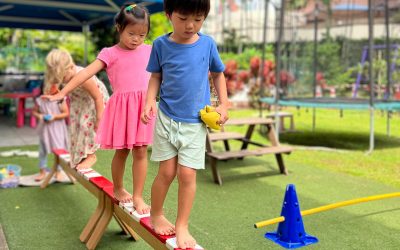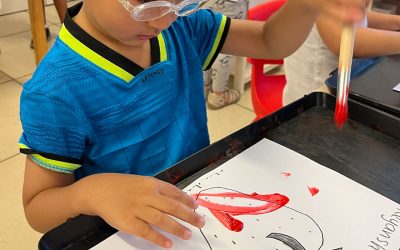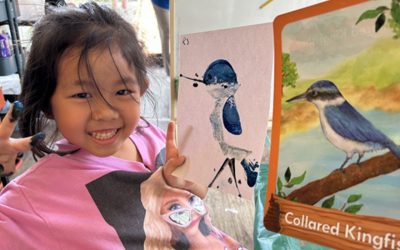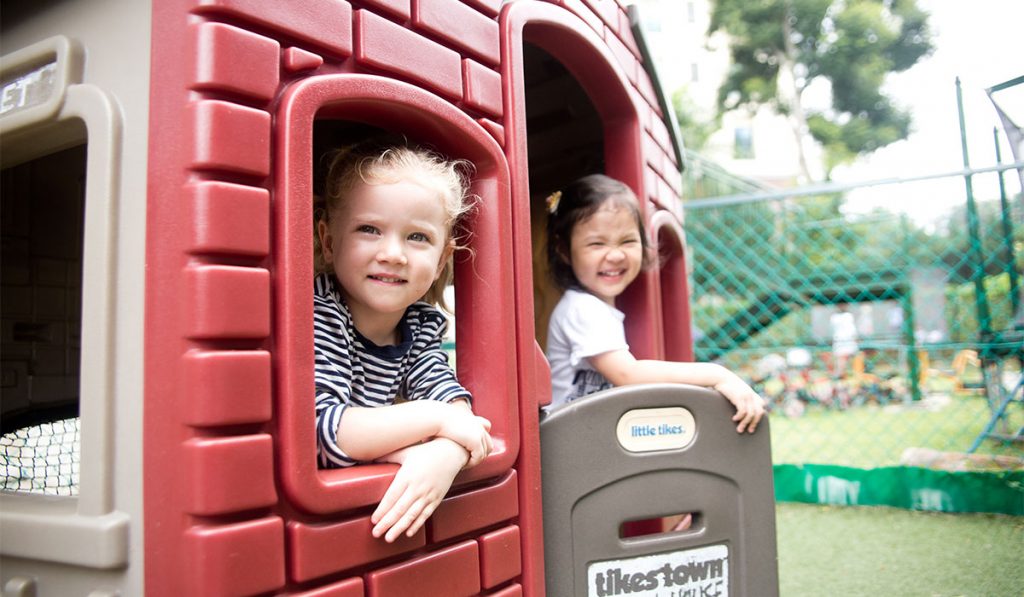
Heard of the term social-emotional development? What does it mean to develop social-emotional skills and why does it matter?
A vital part of the early childhood developmental process, social and emotional skills help kindergarteners to understand and manage their own emotions and behaviour, build positive relationships with others, and develop a sense of self-worth and confidence. While such skills take a lifetime to master, it is important for the seeds of positive social and emotional development to be planted at a tender young age.
In this article, you will learn what social and emotional development is all about, why it matters to your preschool-aged child, as well as how such skills can be bolstered in a kindergarten.
What is Social and Emotional Development?
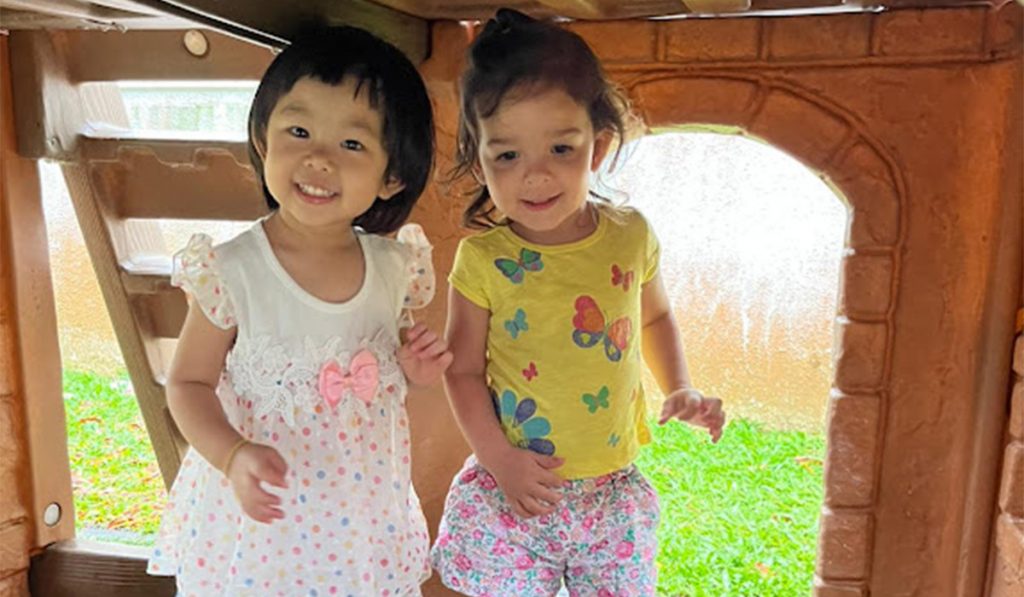
Let us first look at what social and emotional development mean.
Your child’s social and emotional development relates to how they learn about themselves, their emotions, and their interaction with others. It includes how they form and sustain positive relationships, manage and express emotions, as well as explore and engage with the world around them.
It’s important to encourage positive social and emotional development in your child, as it can have a big impact on their self-confidence, empathy, and ability to build meaningful friendships and partnerships. When your child feels valued and important, they will be more secure and confident in themselves.
Your child’s social and emotional development is closely linked to all other areas of their development, so it’s important to give it the attention and support it needs. By nurturing your child’s ability to connect with others, express their feelings, and engage with the world around them, you can help set them on the path to a happy and fulfilling life.
Why does the Social and Emotional Development of Your Child matter?

Social and emotional development matters to your young child. Here’s why.
When our children have strong social and emotional skills, they are better equipped to communicate effectively, empathise with others, solve problems, and work collaboratively. This helps them to form healthy friendships and relationships, which in turn supports their mental health and wellbeing.
One of the key benefits of social-emotional skills is the ability to make friends and keep them. By understanding and using appropriate social skills, children can interact and connect with others, creating lasting relationships.
Children who possess strong social-emotional skills can also effectively resolve conflicts that arise with others. They can understand and accept other perspectives, leading to more positive outcomes when disagreements occur.
Managing stress and anxiety is a crucial life skill, and social-emotional skills can help children develop this ability. By understanding and regulating their emotions, children can develop healthy coping mechanisms, leading to a better quality of life.
Social-emotional skills also help children learn social norms and appropriate behaviour, allowing them to navigate social situations with ease. Through this learning, children can also make appropriate decisions and resist negative social pressure.
In addition, social-emotional skills assist children in learning their strengths and weaknesses. This self-awareness can help children understand themselves better and develop a greater sense of self-confidence. Furthermore, having social-emotional skills also helps children gain awareness of what others are feeling, allowing them to better empathise and connect with those around them.
[Checklist] Social-Emotional Development in Kindergartens
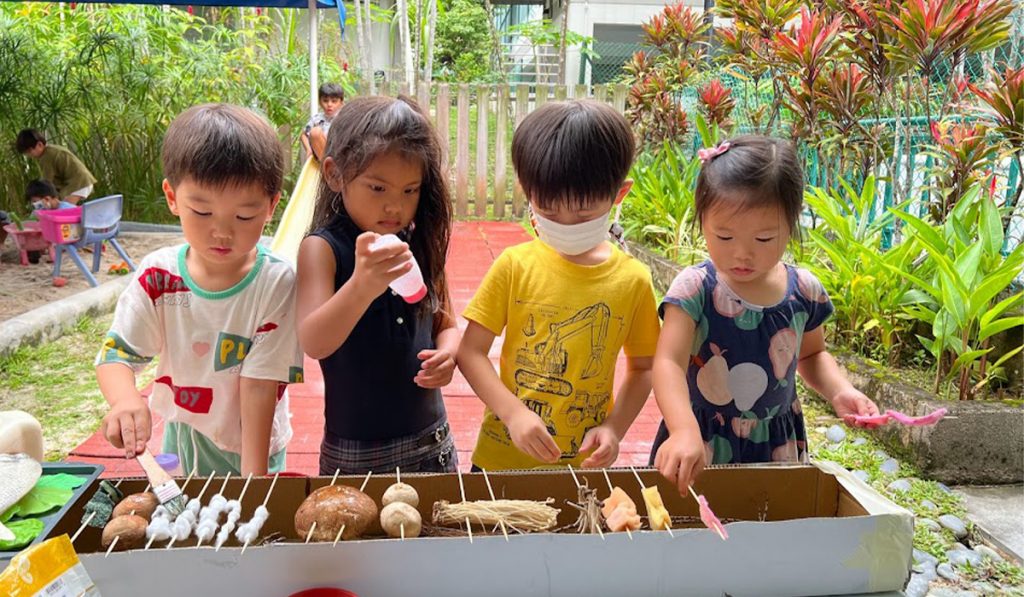
Curious to know how social-emotional skills are inculcated in kindergartens? Typically, such abilities cover various aspects of a child’s development. They include the following.
#1 Emotional Intelligence
Emotional intelligence in a nutshell is the ability of your child to understand and label their emotions. Having a vocabulary to express feelings with words and learning to regulate and manage emotions in a healthy way can be very helpful.
#2 Self-Regulation
Children need to learn how to control their behaviour and manage their emotions. Self-regulation is your child’s ability to understand and manage their behaviour as well as their reactions to feelings and things happening around them.
#3 Effective Communication
Effective communication is an essential life skill for children to develop. This includes the ability to express themselves and to listen and understand the perspectives of those around them.
#4 Social Skills
Developing social skills is crucial in enabling children to make and maintain friendships, as well as to collaborate and work effectively with others in groups. Such abilities will carry them through to later stages of life.
#5 Problem-Solving
Problem-solving is a key skill for children to develop. It includes learning how to identify and solve problems, as well as make responsible and ethical decisions.
#6 Conflict Resolution
Learning how to effectively resolve conflicts with others and handle conflicts in a healthy way is essential to your child’s social development. This is especially important in dealing with bullies.
#7 Empathy
A vital aspect of emotional intelligence, empathy involves understanding and caring about the emotions and experiences of others.
#8 Self-Esteem
A positive sense of self-worth and self-acceptance is a key component of healthy emotional development. It helps your child to gain greater confidence in their abilities, be resilient in the face of challenges, and enjoy a greater sense of self-worth.
#9 Self-Awareness
Being aware of one’s own thoughts, feelings, and behaviours is an important part of emotional intelligence, and helps with self-regulation and managing emotions.
#10 Self-Management
This covers the ability of your child to set and work towards goals, as well as to manage their own time and resources effectively.
How Heartfield Kindergarten Strengthens Your Child’s Social-Emotional Growth
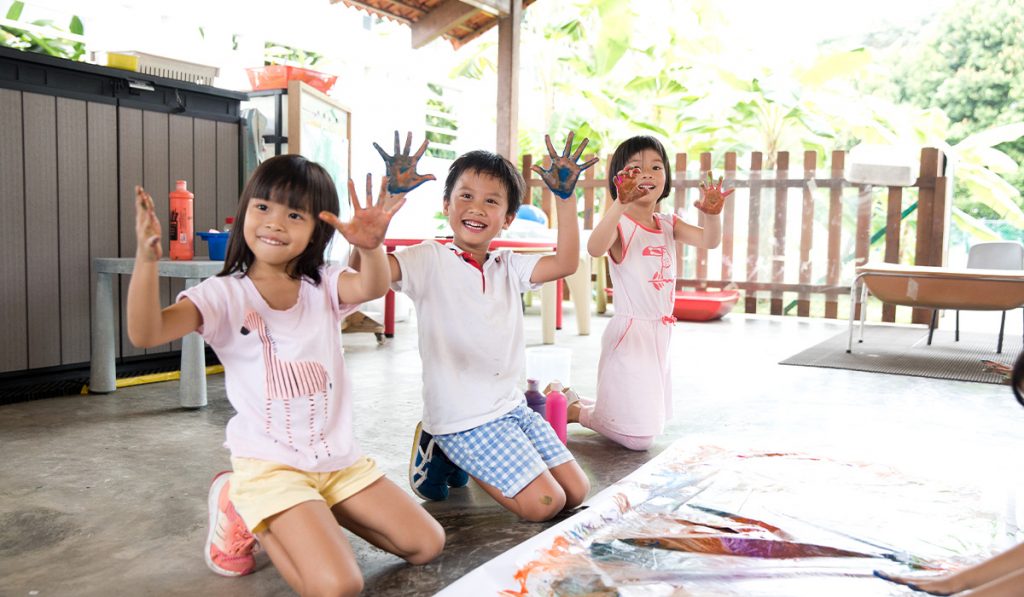
We believe that every child is beautiful and wonderfully made. That’s why our approach to teaching and learning is bespoke, personalised and collaborative, creating an environment that promotes positive social and emotional development.
At Heartfield, we encourage our children to work together on projects that help them develop skills such as self-regulation, perspective-taking, listening, and effective communication. This dynamic way of learning allows children to exercise these social skills on a daily basis. Problem-solving, conflict resolution and empathy are part and parcel of our everyday life here.
Discussions and brainstorming sessions are key to this approach. Such activities allow our children to explore and engage with their environment in a meaningful way. Our teachers are facilitators, using their expertise to understand each child’s unique developmental pathway while guiding them along the way. This helps them to develop self-awareness and encourages them to think about their actions and the impact they have on others.
While we love to encourage and cheer our children on in all they do, we also subscribe to developing a “sober view” of ourselves. This entails having an understanding of ourselves and those around us. The overuse of “Good job!” and hyperbolic praises can lose their meaning. Instead, we offer specific feedback — eg. We say, “You worked really hard to record all the insects you saw in the garden!” (coupled with a big smile) – which acknowledges a child’s effort and not their achievements.
Part of having this self-reflective “sober view” involves taking responsibility for our actions. Here, we create a safe space for children to recognize that we are all works in progress and that we all make mistakes. Our children are encouraged to be responsible for their actions. Because we recognise that mistakes are part of the learning process, and an opportunity to grow, our teachers will take the time to guide our children as they think about their actions, and reflect on their subsequent consequences. For example, we encourage children to “think about what they have done and how they could do things differently in the future”. This heartening way of turning our mistakes into a blessing creates such a positive environment for our children to develop.
We value the power of words and give our children space to share their true feelings and thoughts without fear of being judged. By focusing on constructive social and emotional development, collaborative learning, and personalised teaching, Heartfield Kindergarten hopes to nurture every child to be a positive, empathetic and caring individual.
To learn more, call us at tel: +65 6835 2354, email: info@HeartfieldKindergarten.com or visit our contact page for details.
